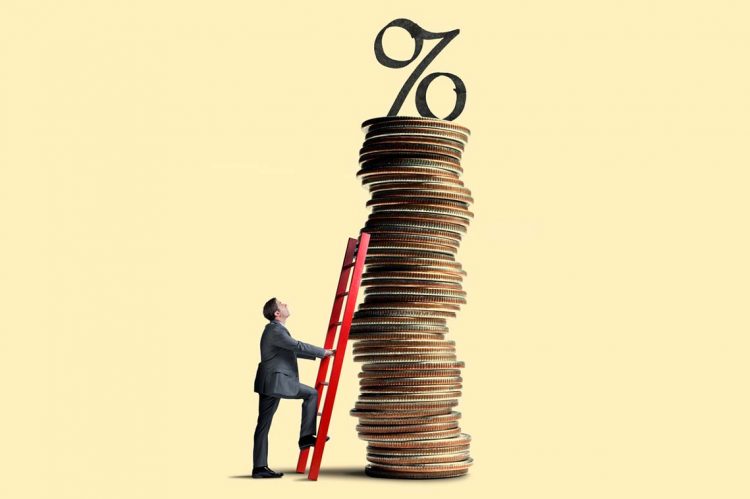Coming off a two-year fever pitch of activity, there are still a number of uncertainties as to how the housing market will transition as we make our way through the remainder of the year.
While forecasts anticipated that 2022 would see a mix of changes, including an uptick in mortgage rates that would undoubtedly add to the affordability challenges many buyers face, fast forward six months, and it’s evident that the upward trajectory of mortgage rates has surpassed even the most liberal forecasts that experts offered late last year.
Based on recent Freddie Mac data, 30-year fixed-rate mortgages (FRM) have surged from sub-three lows to their current level of 5.81%, breaking from forecasts of a “gradual” increase that many economists had reported late last year.
While there isn’t a particular reason for the sharp increase, economists agree that elevated inflation has played a significant role in the upward trend.
“Hints of calming price growth in May led mortgage rates to temporarily plateau,” said Matthew Speakman, a senior economist at Zillow. “But May’s official inflation data came in hotter than expected, prompting a tremendously strong surge higher for mortgage rates in the days that followed.”
In a recent commentary featured on Zillow, Speakman offered his thoughts on the factors behind the spike in mortgage rates and the implications for the housing market.
Higher inflation typically raises bond yields, contributing to the trajectory of mortgage rates. By that measure, Speakman noted that inflation—running at a 40-year high—has added upward pressure on mortgage rates.
“Needless to say, investors are eagerly searching for signs that inflation is cooling,” he said, adding that mortgage rates also reflect market expectations for how the Federal Reserve addresses the high inflationary environment.
As the Fed sought to tighten monetary policy and reel in elevated inflation, recent interest rate hikes have also had a hand in the mortgage rate increases.
“Fears that the hotter-than-expected May inflation data would lead the Fed to make a much more aggressive policy decision helped influence the rapid hike in mortgage rates in mid-June,” Speakman says.
While the central bank’s decision to raise interest rates by 75 basis points resulted in a decline in mortgage rates, the short-lived retraction has seemingly reversed.
Some economists tell RISMedia that a 6% mortgage rate could be on the horizon.
“I don’t expect to see the same sharp increases that the market experienced in March and April,” says Nadia Evangelou, senior economist and director of forecasting at the National Association of REALTORS®.
While mortgage rates aren’t solely to blame, Evangelou says that the market has already begun showing signs of cooling down as housing affordability has worsened.
“Both rising mortgage rates and home prices hurt affordability for many buyers,” she says.
Zillow echoed similar sentiments in recent reports that indicated that mortgage costs coupled with skyrocketing home prices and record-level inflation have contributed to housing affordability levels hitting a 15-year low.
In a recent commentary on the state of mortgage rates, George Ratiu, a senior economist at realtor.com®, indicated that mounting financial pressures are compounding the ongoing affordability crisis in real estate markets.
“For buyers of a median-priced home, the one-two punch of record-high prices and rising interest rates has pushed the monthly mortgage payment to about 64% more than last year, tacking on over $800 to the cost of financing,” Ratiu said in a statement.
Where does that leave the market?
“Higher mortgage costs should calm demand and usher in some much-needed rebalancing of the market,” Speakman said.
Evangelou echoed a similar sentiment, adding that home sales, which have declined over the past four months, are likely to drop further as home prices continue to rise.
“Higher mortgage rates typically cause prices to cool, but that’s not currently the case,” she says. “Due to the severe housing shortage, home prices won’t drop in 2022. Remember that when there is a housing shortage, home prices don’t fall.”
While that has been evident in the consistent double-digit growth in price tags that have been seen throughout the past year, recent data suggests that there has been a gradual deceleration in price growth.
Speakman also noted that price cuts have become more common in some instances as sellers are being challenged to reconsider their expectations.
“It’s important to remember that while mortgage rates are certainly not the only reason why homeowners decide to move, they do factor into the equation, and for some potential movers, the prospect of giving up their current mortgage and taking on one with a rate that is nearly double their current one is enough to back out of the transaction,” he said.












